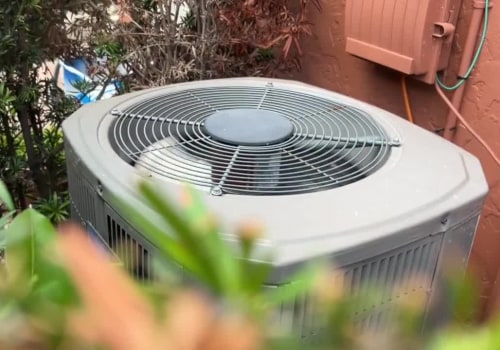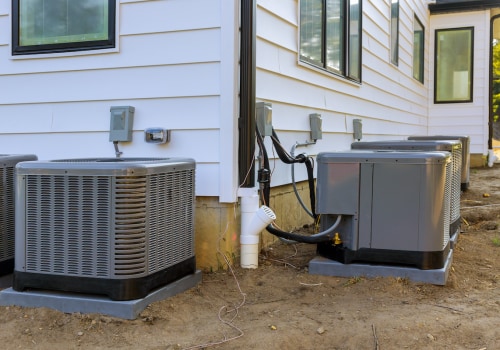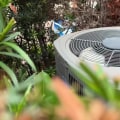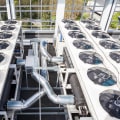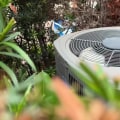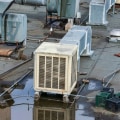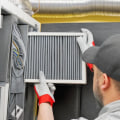The Air Filter MERV Rating Chart Helping Achieve Cleaner Air in Palm Beach County FL HVAC Upgrades
For better air quality in the air during HVAC replacement, use the air filter MERV rating chart. MERV ratings range from 1 to 20, and the higher the rating, the better the filtration. Filters with higher MERV ratings can catch more airborne particles, which means better indoor air quality, fewer allergens, and less dust. It should also make sure that the filters have a density as stipulated by the specifications set by the HVAC system itself so as not to cause it to obstruct airflow. The other factor is to use filters suitable for allergies or asthma. A filter suitable for an indoor application enhances air quality while increasing the effectiveness of the HVAC. There's much more about how to properly optimize indoor air.
Key Takeaways
Refer to a MERV rating chart when purchasing an air filter to upgrade an HVAC system within Palm Beach County, FL, to improve interior air quality.
Filters with greater MERV values capture smaller-size particles, offering better air filtering and fewer allergy-causing items in homes.
Make sure your chosen filters won't restrict your HVAC system to prevent reduced airflow, a condition that threatens performance.
The proper replacement of air filters about MERV ratings will ensure that HVAC systems function efficiently and keep living spaces comfortable.
To find a qualified Palm Beach County HVAC contractor for advice on choosing filters and upgrading systems, call us.
Understanding MERV Ratings
MERV ratings are highly important in optimizing the quality of air in HVAC systems. MERV is the acronym for Minimum Efficiency Reporting Value and represents the ability of air filters to capture particles of varying sizes. It runs from 1 to 20. The higher the number, the more efficient it is. The more significant the MERV rating of a filter, the more dust, pollen, pet dander, and even some bacteria will be filtered out from circulating within homes.
Filter efficacy vs. airflow is still extremely important. Very dense filters can choke airflow cause the HVAC system to work even harder and increase energy bills. It's so tempting to use the highest MERV filter, but it must be weighed against system specifications and compatibility.
Before an upgrade, a check of the HVAC manual or a professional might be required in order to select a filter meeting system requirements. The proper understanding of MERV ratings is to make decisions to improve indoor air quality while sustaining HVAC efficiency. A good, selected filter makes a big difference in comfort and health in the living environment.
Benefits of high MERV Filters
High MERV filters provide the maximum enhancement of indoor air quality. It filters a broad range of airborne particulate matter, which includes dust, pollen, pet dander, and mold spores. A considerable reduction in allergens within a house makes for a healthier residence for its members.
Other benefits of the upgrade are increased efficiency in HVAC systems. The higher MERV filters trap more particles, so there is no chance of the accumulation of dirt and debris within the system and possible malfunctions. This will translate to less costly repairs and an extended life for HVAC units.
Clean air comfort increases with comfort. There will be better sleep and general well-being with fewer irritants. For families of asthma or allergy sufferers, high MERV filters present especially worthwhile improvements.
Choosing the Right MERV Rating
The appropriate MERV rating for an HVAC system is very important in maintaining indoor air quality and comfort. MERV stands for Minimum Efficiency Reporting Value, which basically describes the efficiency of an air filter in collecting particles. The ratings range from 1 to 16; the higher values mean better filtration.
First, determine your personal needs. Allergy or asthmatic sufferers will have to opt for a higher MERV ratings, say, between 11 and 13. Such filters contain smaller particles that help to trap pollen and pet dander. Generally, people prefer something on a scale of 8-10 in maintaining air quality.
Consider your HVAC system's compatibility as well. Many systems cannot accommodate high-MERV filters. Installing a filter that exceeds your system's capacity could hinder airflow, resulting in increased energy expenses and possible damage.
Lastly, consult the manufacturer's guidelines. Recommendations usually include optimal filter ratings for specific units. Balancing filtration efficiency with system capabilities aids in selecting the right MERV rating, ensuring cleaner air while maintaining HVAC performance.
Impact on Indoor Air Quality
One of the good ways to improve indoor air quality is through upgrading the MERV ratings of the air filter. A higher MERV-rated filter captures smaller particles, meaning less dust, pollen, mold spores, and pet dander in a home. This can be very helpful for those who have allergies or breathing problems. Improved air quality creates a healthier living space and improves comfort.
A higher rating for MERV essentially means it's an investment in better airflow through investing in a higher-rated filter. That said, kinds of filters make a particular HVAC more efficient, leading to lower consumption over time and hence clean air is justified towards creating a delightful atmosphere for pleasant living that enables people to easily stay in or live in this house.
In addition, MERV-rated filters that are of high rating ensure that odor and harmful pollutants are eliminated for general well-being. High-rated filters are essential in places with high humidity or pollution levels to ensure safety in the indoor environment. Nevertheless, the filter efficiency and capabilities of the HVAC system are balanced. The consulting professionals can identify the appropriate MERV rating that can be applied to specific systems without compromising on performance for good indoor air quality.
Tips for HVAC Replacement
Upgrading an HVAC can significantly improve air quality indoors, but makes sense only in case of when and how. First, begin with the inspection of the old system's age. If 10-15 years have gone by, and the system becomes outdated, it is indeed time to opt for a change. Second, check for wastage in an HVAC system increasing energy costs, or unstable heating/cooling, which in turn means not working properly in the system.
Before deciding, research the different types of HVAC systems that fit specific needs. Consider energy efficiency ratings; a more efficient unit can save money in the long run. It is also good to check MERV ratings on air filters; higher ratings trap more contaminants, which leads to better air quality.
When ready to replace the system, hire a licensed HVAC contractor. He or she will make sure it is installed correctly and will help select the right option for your home. After installation, maintenance is crucial since it helps to extend the life of the system and ensure clean air quality. With these tips, clean air and comfortable living are ensured.
Frequently Asked Questions
What Does MERV Stand for in HVAC Systems?
MER V is an acronym that stands for Minimum Efficiency Reporting Value. This rating is actually a definition of just how effective an air filter will be at holding onto particulates. The greater the MERV rating, the higher filtration which will yield cleaner air inside your home or business.
How Often Do I Need to Change My Air Filter?
Replace the air filters from one to three months. These depend on your usage as well as filter size. Check often for the highest efficiency using fresh air, maximizing the functioning of your HVAC.
Can I Install a MERV Rating Greater than the Specified Rating?
A higher MERV rating is allowed but can potentially restrict airflow. The limitation will strain the HVAC system more. It would be prudent to look at the manufacturer's specifications on ideal performance and prevention of damage.
Do MERV Ratings Have an Effect on HVAC System Performance?
MERV ratings impact the efficiency of HVAC systems. Higher ratings trap more particles, improving air quality, but excessive ratings can restrict airflow if not compatible with the system. Balancing filtration needs with system capabilities remains important.
Are There Specific MERV Recommendations for Homes With Pets?
MERV 7-10 filters will work great for homes that have pets since they capture pet dander and other allergens and will dramatically improve indoor air quality.
Learn more about HVAC Care from one of our HVAC solutions branches…
Filterbuy HVAC Solutions - Air Conditioning Service
2521 NE 4th Ave, Pompano Beach, FL 33064
(754) 484-4453
https://maps.app.goo.gl/JmWkEXya7uzuLzBh8

